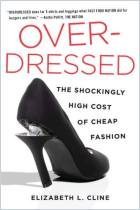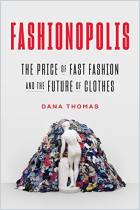
What Fast Fashion Costs the World
Many clothing donations end up in an unexpected place – African landfills.
Recommendation
Remember the box of discards you brought to a charity collection bin last month? You, in your benevolence, not only helped a nonprofit raise funds, you also gave your old – and even not-so-old – clothing a second life in a new home. A win-win situation, right? Writing for Experience Magazine, Ryan Lenora Brown says, well, likely not. She follows the donated clothing trail to find out what really happens to fashion castoffs. Brand names like H&M, Target and Mango, for example, bring affordable style to the masses, but that cheapness comes with a significant cost. Often “fast fashion” ends up relegated to a landfill far, far away.
Summary
About the Author
Ryan Lenora Brown’s work has appeared in The Washington Post, The New York Times Magazine and Runner’s World.



















Comment on this summary or 开始讨论